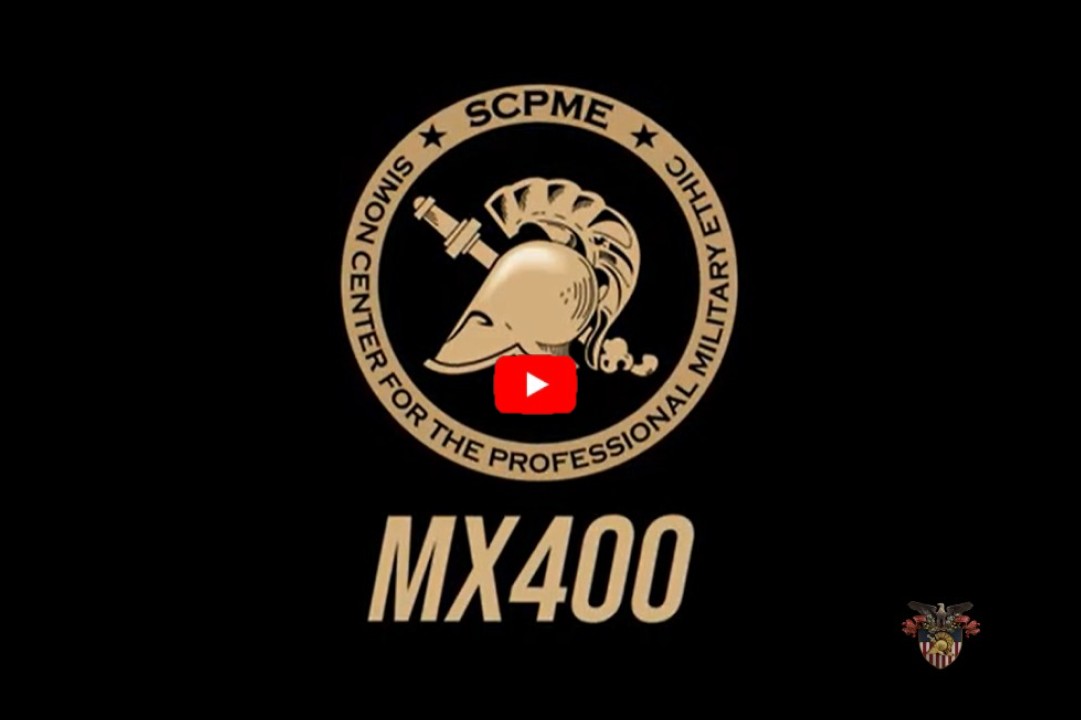William E. Simon Center for the Professional-Military Ethic (SCPME)
William E. Simon Center for the Professional-Military Ethic (SCPME)
About
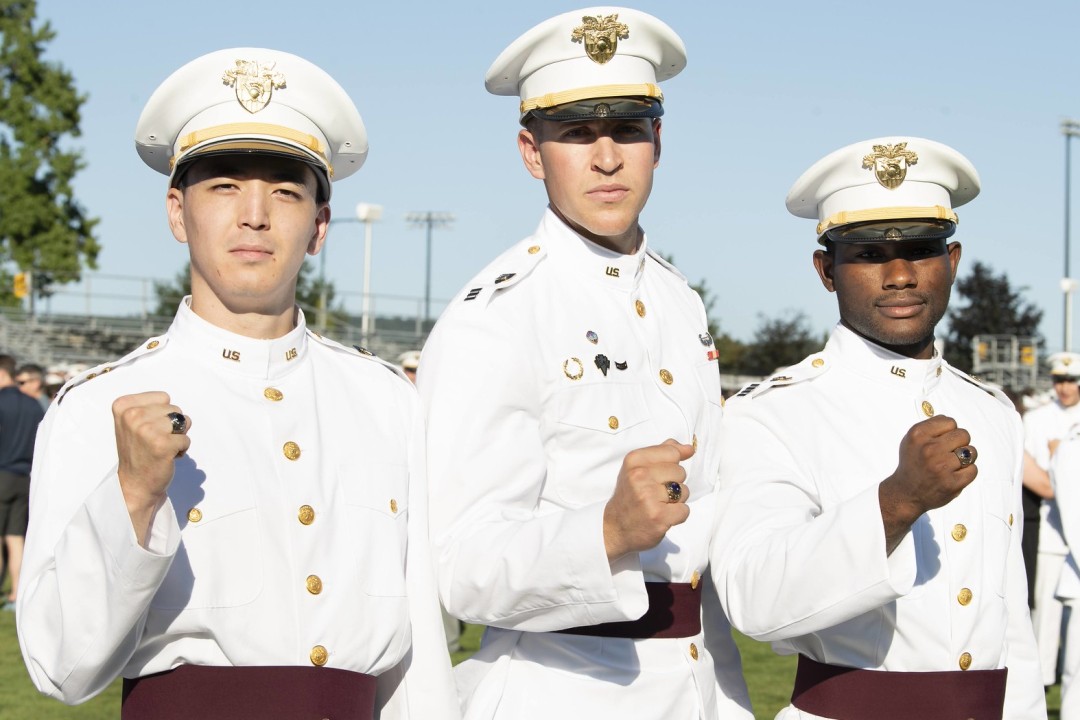
Developing Leaders of Character for the Army and the Nation
Through education, mentorship, research, and stewardship of the Cadet Honor Code and Cadet Character Education Program, SCPME ensures that the values of Duty, Honor, Country are not only taught but lived daily across the Corps of Cadets. From the first moments of Cadet Basic Training to the capstone course MX400: Officership, SCPME integrates ethics, leadership, and moral reasoning into every stage of a cadet’s 47-month experience—preparing them to lead with integrity in the most challenging environments.
In partnership with CJO and other initiatives, SCPME ensures officers are prepared not only for their first commission, but for a lifetime of professional excellence and service.
SCPME's enduring priorities include:

Building the Foundation for Future Leaders of Character
At West Point, you will major in character. The Simon Center shapes your growth as a future Army officer by helping you understand what it means to live and lead honorably: to be the kind of leader others trust to make the right decisions, even when the right path is the harder one.
From the Cadet Honor Code, you will learn to build the habits of integrity and judgment that define lifelong leadership. Through courses like MX400: Officership, the Mission Command Conference, and the National Conference on Ethics in America, you will engage with real-world ethical challenges and learn to apply the Army’s professional framework of Character, Competence, and Commitment.
Your Army career starts—and continues—with a foundation of character, leadership, and trust that sets you up not just to serve—but to lead.
Take the First Step
Start your West Point application
"A cadet will not lie, cheat, steal, or tolerate those who do."
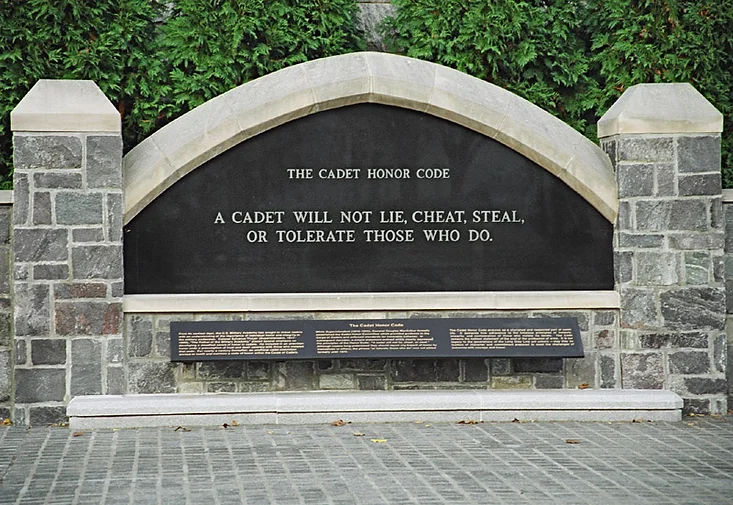
The Cadet Honor Code: A Foundational Ethical Identity
From Reception Day onward, the Cadet Honor Code is more than regulation—it is a practice of honesty, fairness, respect, and responsibility. The Cadet Honor Code forms the foundation of your growth. You’ll engage in daily decision‑making under this Code, forging habits of trustworthiness that remain long after you graduate.
It’s not just a set of rules: it is a daily practice of honesty, fairness, respect, and responsibility.
Living by the Code helps you:
- Make the “harder right” decisions when faced with ethical dilemmas.
- Cultivate habits of unwavering trustworthiness.
- Earn the confidence of peers, subordinates, and superiors alike.
Progressive Character Development, Year by Year
From the first moments of Cadet Basic Training to the capstone course MX400: Officership, SCPME integrates ethics, leadership, and moral reasoning into every stage of your 47-month experience—preparing you to lead with integrity in the most challenging environments.
In operational environments where moral ambiguity, stress, and stakes are high, the habits of character you build now give you clarity, confidence, and credibility.
When you graduate, you will not only be prepared to lead Soldiers—you will be ready to lead lives of purpose, grounded in trust, discipline, and service to the Nation.
Focus: Honor, Army Values, Respect, and Empathy
- Cadet Basic Training (CBT): Introduction to the Cadet Honor Code and Honor System
- Squad-level discussions on real-world scenarios of ethical decision-making
- Learn Army and West Point values: Duty, Honor, Country
- Explore respect, empathy, and leadership standards through interactive exercises
- Summer Leader Training: Cadet leaders reflect on lessons learned and strengthen their commitment to leading honorably
Academic Year Activities:
- Living honorably in everyday cadet life
- Deep dive into the Honor System and Academy policies
- Reconciling loyalty with ethical decision-making
- Character development lessons
Focus: Integrity, Lawful Conduct, and Service
- Summer Leader Training: Reflection and discussion to reinforce honorable leadership
- Academic Year Activities:
- Understanding the Cadet Honor System and Honor Committee
- Army values, law, and responsible choices (including alcohol use)
- “State of the Code” discussion and company Honor-Rep elections
- Lectures and discussions on integrity, moral courage, and selfless service
- Cemetery tour to explore the meaning of service
Focus: Professional Ethics, Accountability, and Leadership Challenges
- Summer Leader Training: Cadet leaders refine understanding of honor in leadership
- Academic Year Activities:
- Examining honor in the Army Profession and the Non-Toleration Clause
- Participating in leader challenges to test ethical decision-making
- “State of the Code” discussion on stewardship and ethical responsibility
- Character development lectures and discussions
Focus: Ethical Leadership and Officer Development
- Summer Leader Training: Reflection and reaffirmation of commitment to honorable leadership
- Academic Year Activities:
- MX400: Officership Capstone Course – Reflect on character development and prepare for Army service
- Officer testimonies on leading honorably
- Leader challenges and panel discussions with recent graduates
- Advanced lectures and discussions on character and ethical decision-making
MX400 Highlights:
- Reflection on past cadet experiences and preparation for future Army challenges
- Case studies on ethical dilemmas and leadership in complex operations
- Emphasis on becoming commissioned officers of character: virtuous, honorable, and ready to serve
MX400: Officership — The Capstone of Character and Leadership
In their final semester, cadets take MX400: Officership, West Point’s capstone course that brings together everything they’ve learned—academics, leadership, military science, and ethics.
Through real-world case studies and guided discussions, cadets explore what it means to lead honorably in complex, uncertain situations. They analyze moral and professional challenges drawn from modern military operations and reflect on how to apply the Army Ethic in decision-making.
MX400 helps cadets bridge the transition from student to officer, strengthening their confidence and sense of moral responsibility. By the end, each graduate is ready to lead soldiers with integrity, think critically under pressure, and uphold the Army’s highest values—Duty, Honor, Country.
High‑Impact Experiential Learning
SCPME guides you to understand what it truly means to be a commissioned officer in the U.S. Army. You don’t just learn leadership, you internalize it, preparing to become a commissioned officer who leads honorably in the most challenging environments.
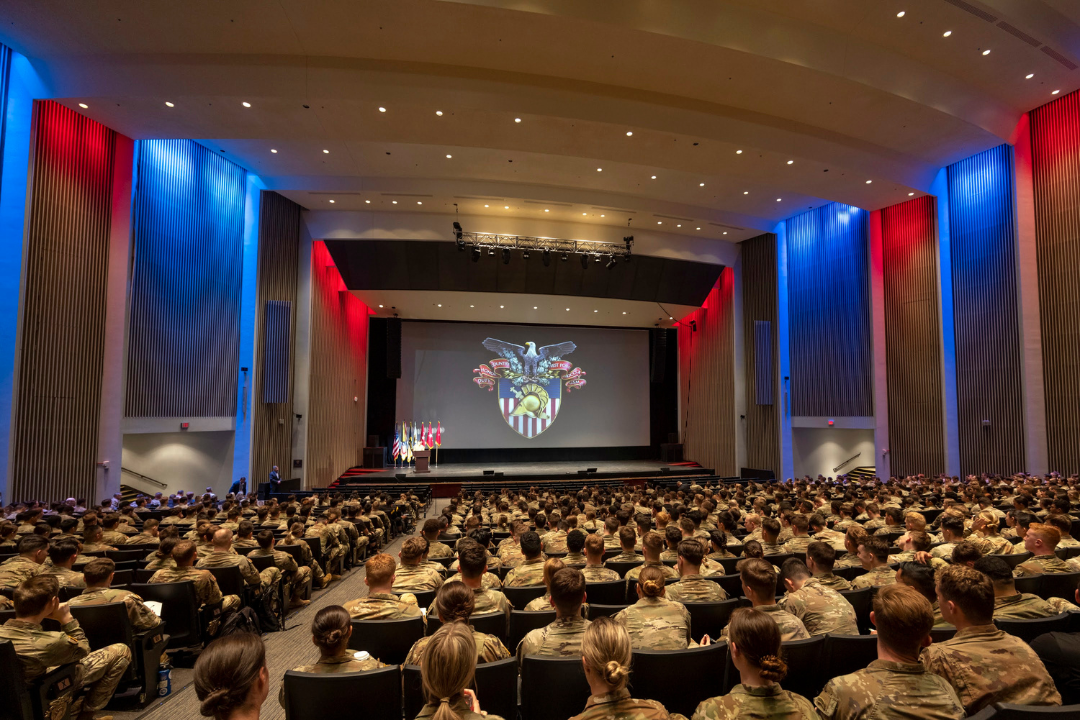
Mission Command Conference (MCC): Engage with operational leaders, explore real mission‑command scenarios, examine trust and decision‑making in demanding environments.
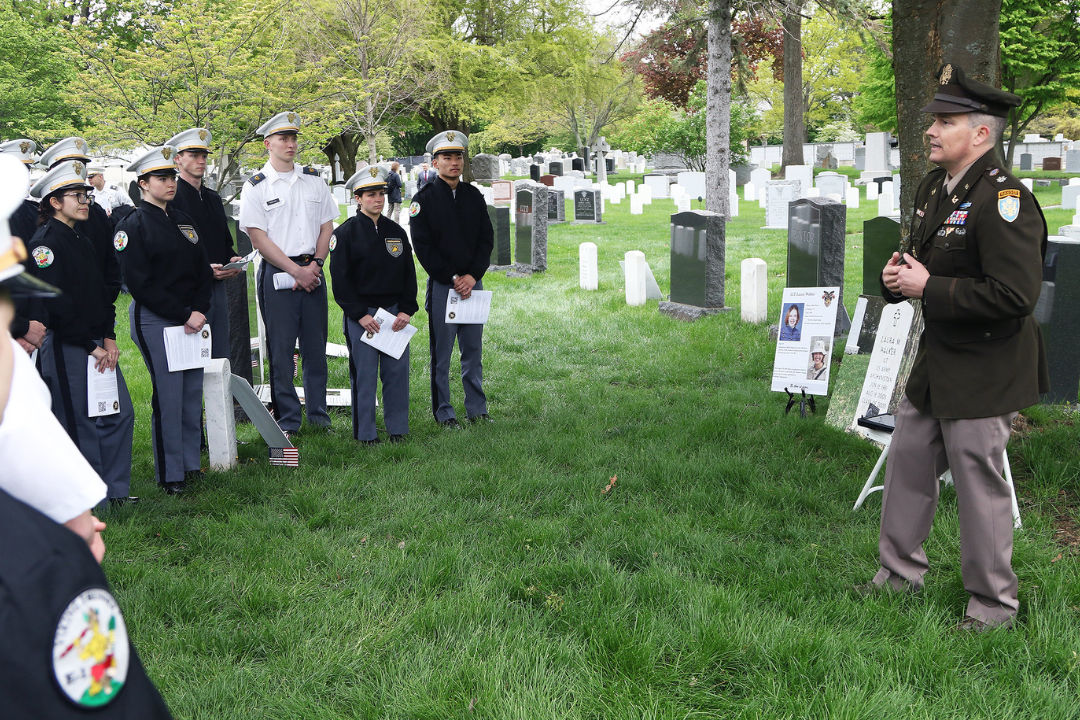
Inspiration to Serve Cemetery Tour: A reflective experience linking you to the Long Gray Line, honoring those who served, and helping you decide what kind of leader you’ll become.
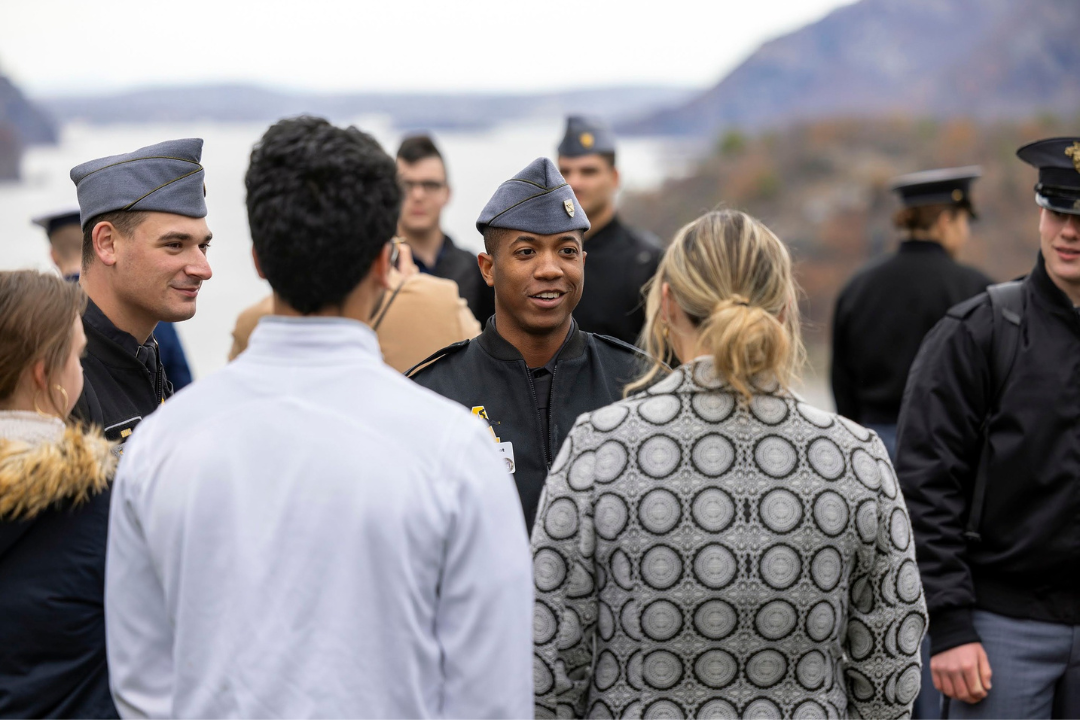
National Conference on Ethics in America (NCEA): A large annual forum hosted by SCPME where you collaborate with peers from service academies, ROTC, and universities worldwide to tackle contemporary ethical challenges.
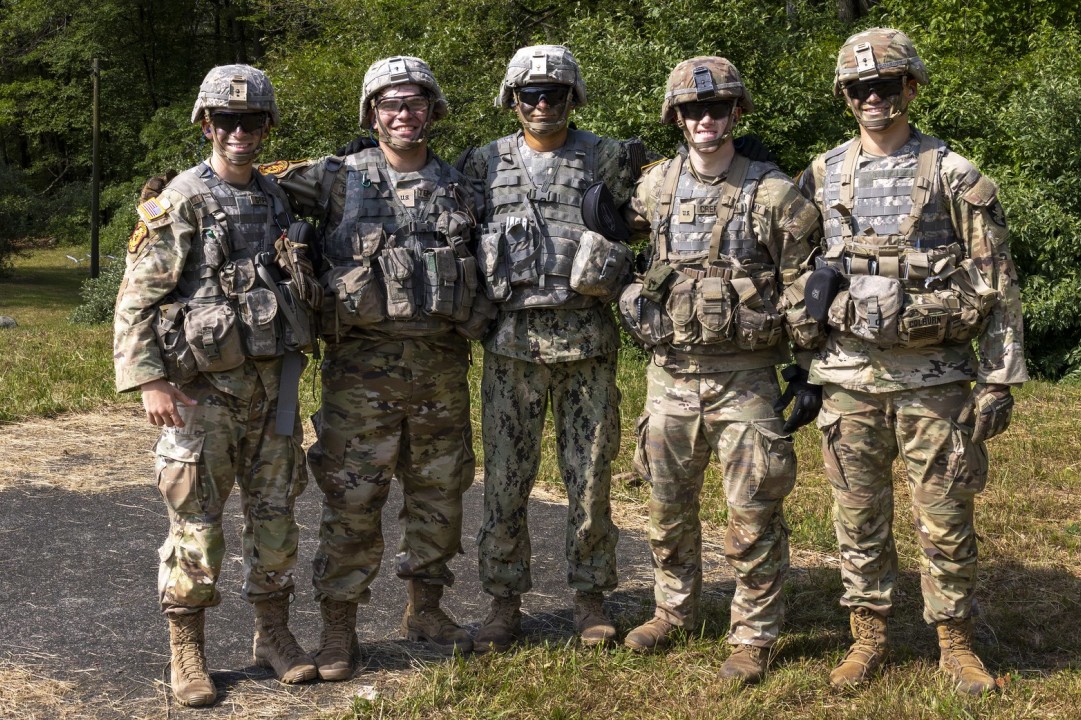
Advancing the Profession of Arms Together
SCPME ensures that every cadet at West Point is prepared to uphold the Army’s highest ethical standards. Through immersive education, experiential learning, and partnership with distinguished leaders, SCPME cultivates leaders of character who make decisions guided by integrity, fairness, and honor.
The Simon Center’s impact extends far beyond the classroom. The cadets who benefit from SCPME go on to lead units, mentor soldiers, and shape the profession, having ripple effects across the Army and generations of service.
SCPME collaborates with with military, academic, and professional partners who share our commitment to ethical leadership and character development to create transformative programs that shape the moral foundation of the Army’s next generation of leaders.
Our partnerships include:
- Army Commands and Centers of Excellence advancing doctrine and professional ethics.
- Universities and research institutions exploring the moral dimensions of leadership and warfare.
- Nonprofit and public-sector organizations contributing to national conversations on trust, accountability, and service.
Together, we conduct research, host conferences, and exchange best practices that enrich cadet education, advance the study and practice of professional ethics in the Army, and strengthen the broader profession of arms. Each effort directly strengthens the Army’s ability to field officers of unmatched integrity and competence—leaders who can be trusted to uphold the Nation’s highest ideals in peace and war.
Partner with SCPME
Partnerships with SCPME are flexible and mutually beneficial, ranging from guest speaking and case study contributions to collaborative research and support for cadet programs. These collaborations help shape ethical standards across the Army by engaging with programs that directly influence cadet development and officer preparation.
Contribute content: Submit case studies, articles, or audio/video content to SCPME or CJO for inclusion in cadet seminars or junior officer development.
Joint research initiatives: Engage in research with SCPME faculty and staff on leadership, ethics, the Army Profession, or related topics.
Participate in conferences: Support NCEA, MCC, or other character‑education events, by serving as a panelist or presenter to provide cadets and junior officers with real-world insights.
Facilitate experiential input: Provide operational leaders, guest speakers, or scenario‑based opportunities for cadets or junior officers to interact with real‑world challenges.
Support the CJO platform: Leverage the CJO resources for your units or organizations and integrate SCPME/CJO tools into your leader development programs.
SCPME Staff and Faculty

Colonel James Yastrzemsky
SCPME Director
Colonel James Ross Yastrzemsky (“Yaz”) is a native of Baltimore, MD. He graduated from the U.S. Military Academy at West Point in 1997 as a NCAA Lacrosse Academic/Athletic All-American (Team Captain) with a Bachelor of Science degree in Civil Engineering.
COL Yastrzemsky has served in numerous command and leadership positions beginning with 1-3 Attack Helicopter Aviation Regiment at Hunter Army Airfield, GA. He initially deployed to Ft. Hood, Texas to conduct the Apache Longbow Unit Fielding and Training Program (UFTP).
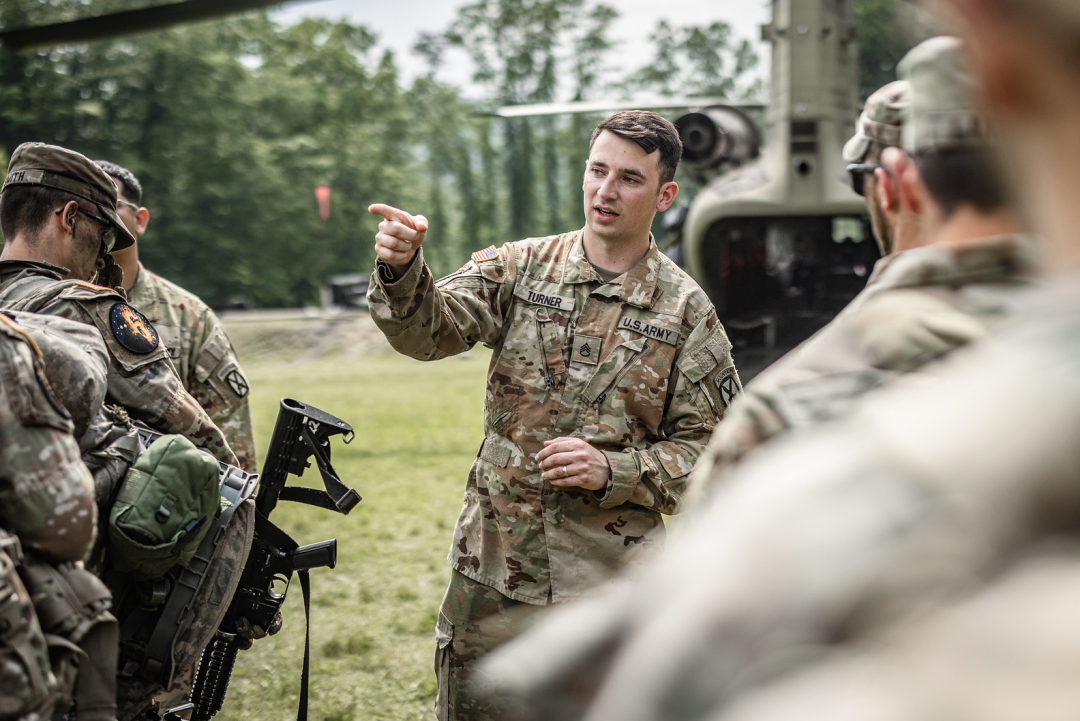
Join the Mission
Educating, training, and inspiring the Corps of Cadets to become leaders of character is one of the most meaningful callings in the Army. As a member of the Simon Center team, you will play a central role in shaping the ethical foundations of America’s future officers.
Staff and faculty responsibilities include:
- Teaching MX400: Officership: Engage first-class cadets in seminars on character, competence, and commitment, emphasizing ethical decision-making in complex operational environments.
- Mentorship: Guide cadets through character development and leadership challenges.
- Research and Scholarship: Contribute to the study of ethics, leadership, and officership across interdisciplinary fields such as philosophy, psychology, history, and social sciences.
Officers selected for graduate study through the Advanced Civil Schooling Program pursue degrees in philosophy, psychology, history, or related fields—broadening their expertise before returning to teach and lead at West Point.
Explore Employment Opportunities at SCPME
Join the teamHow West Point Fulfills Its Mission
SCPME helps cadets understand what it means to be a commissioned leader of character within the West Point Leader Development System (WPLDS) and ensures cadets live honorably and lead honorably—both in their service and beyond.
Becoming a Leader of Character
From the moment you arrive as a plebe to the day you graduate as a commissioned officer, everything you do here is designed to shape your character and leadership.
Center for Junior Officers (CJO)
The CJO is an Army‑wide platform that acts as a scholarship and resource repository for junior officers and extends SCPME’s influence beyond cadets and into the active Army, enhancing leader development and ethical professionalism at more levels.
